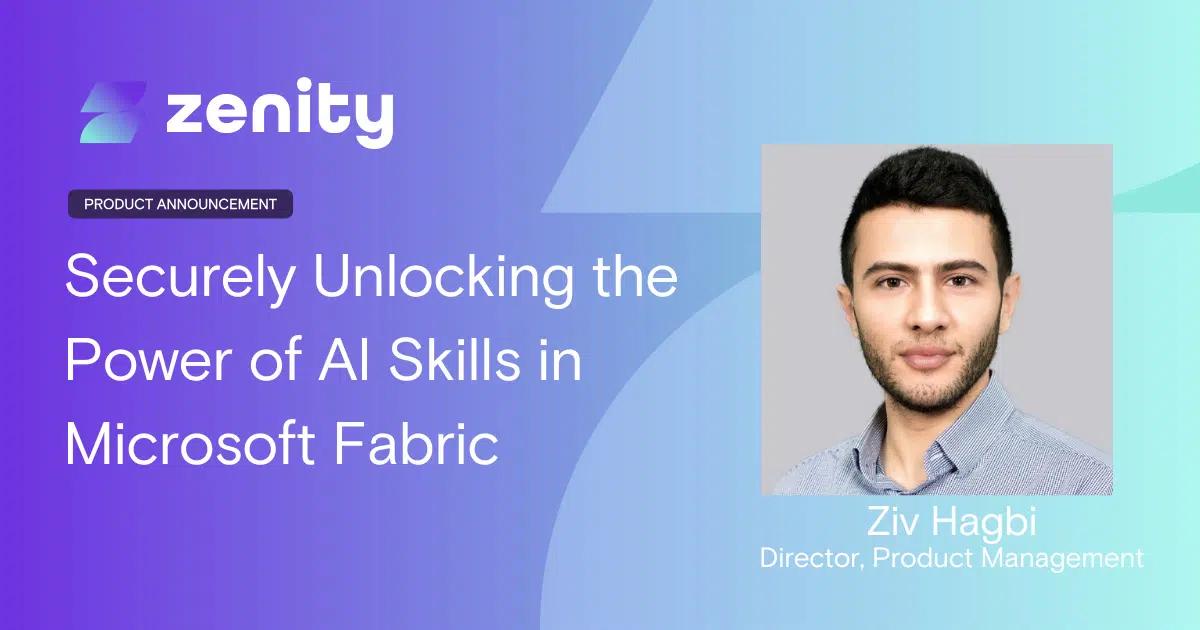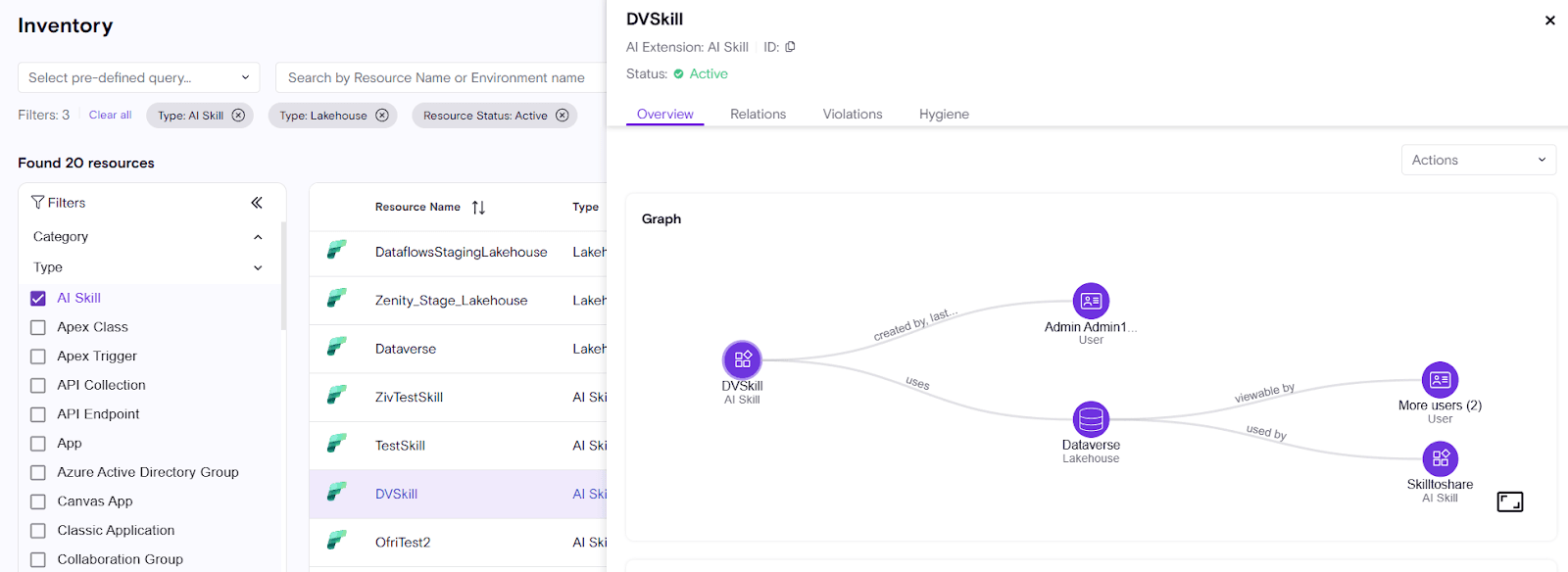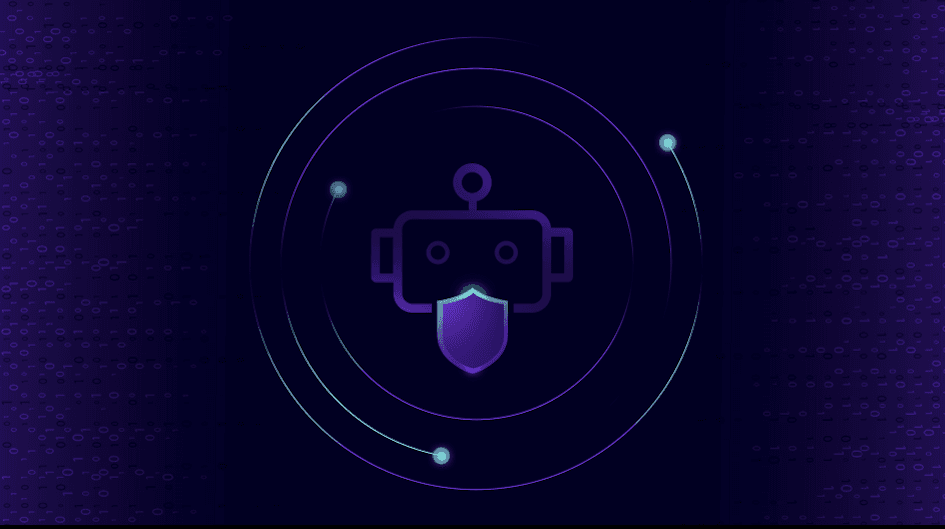Securely Unlocking the Power of AI Skills in Microsoft Fabric

In today’s rapidly evolving digital landscape, the ability to harness the power of AI is becoming increasingly crucial for businesses. Within Microsoft Fabric, Microsoft recently added capabilities for building AI Skills, making it easier than ever for business users to create and integrate intelligent capabilities into your workflows to answer questions over lakehouse and warehouse tables. AI Skills are basically LLM engines that simplify interactions with data.
However, like with anything that democratizes development, allowing citizen developers to build systems that touch sensitive corporate data, there are several inherent risks that Fabric customers must own.
In this blog, we’ll show you why developing AI Skills in Fabric is so valuable and how these skills can be seamlessly incorporated into both Microsoft 365 Copilot and AI Agents built using Copilot Studio. Throughout, we’ll show you how Zenity brings AI Security Posture Management (AISPM) capabilities to provide security teams with the ability to secure and govern AI Skills in one unified platform.
Incorporating AI Skills into AI Agents and Assistants
Within the Microsoft ecosystem, business users have the ability to integrate AI Skills that they build into both Microsoft 365 Copilot as well as other custom AI Agents that are built in Copilot Studio. With the power of AI Skills in Fabric, which can access and query huge lakehouses and warehouse tables, AI Agents and Assistants can be used to great effect to generate reports, analyze large datasets in Excel, and more. Business users of all technical backgrounds can also integrate AI Skills to create even more intelligent chatbots and agents, automate processes, and lots more.
As business users are making these choices, both in terms of building the AI Skills themselves, as well as interacting with Agents that rely on AI Skills, security teams need to be mindful of the underlying security risks. Chiefly, what data is being accessed by the AI Skills and how it’s shared, as well as how business users use and interact with the various AI Skills in production.
Zenity is the first company that can appropriately identify, monitor, and secure AI-Skills and their underlying data. As shown in the below image with the underlying inventory tab that can be double clicked to show the Zenity Attack Graph for each individual AI Skill to show things like who built it, what lakehouses it accesses, and who can use and share that Skill.

How to Approach Security to AI Skills
AI Skills by their nature, can and often do access, process, and store highly sensitive data. As business users easily build and incorporate AI Skills into various workflows, the data they expose can be critical for the organization to understand and govern. Because of the lack of SDLC in low-code development platforms like Microsoft Fabric, citizen developers are able to make their own choices about how to build AI Skills including what guardrails to apply, who can access them, and which knowledge sources to give each skill.
Therefore, it’s imperative to have eyes over who can access the AI Skills and the underlying data and ensure there is no unauthorized access to sensitive skills. In addition to inventorying all AI Skills, Zenity provides additional measurements to enrich the business context of how the AI Skills exist and any underlying risks.
This includes:
- Sensitivity labels, as applied by users or Microsoft Purview
- Endorsements, which are the level of trust the org has for this AI Skill (Promoted, Certified) as well as who gave that endorsement
- Visibility into underlying resources used by the AI Skills. In Fabric, these are uniquely called ‘Lakehouses’ which all then have their own sensitivity labels and endorsements to account for

Conclusion
Building AI Skills in Microsoft Fabric is not just a technical endeavor; it’s a strategic move that can transform your business. However, with the ease of low-code/no-code development and the powerful integration capabilities of Microsoft 365 Copilot and Power Platform, there are big risks that need to be accounted for in order to properly govern the usage of Fabric from end-to-end. Embrace the future of AI and unlock new levels of productivity, efficiency, and innovation with Zenity’s AISPM capabilities for Fabric, which extend beyond AI Skills, into any other resource type that business users are building and accessing in the Microsoft ecosystem. Let us know if you want to see it for yourself!
All ArticlesRelated blog posts

GreyNoise Findings: What This Means for AI Security
GreyNoise Findings: What This Means for AI Security Late last week, GreyNoise published one of the clearest signals...

The CISO Checklist for the New AI Agent Reality
AI agents are now acting across SaaS, cloud, and endpoint environments with identities and permissions that traditional...

Demystifying AI Agent Security
Let me be the first to say it, this space - AI agent security and governance - can be confusing. When I joined...
Secure Your Agents
We’d love to chat with you about how your team can secure and govern AI Agents everywhere.
Get a Demo